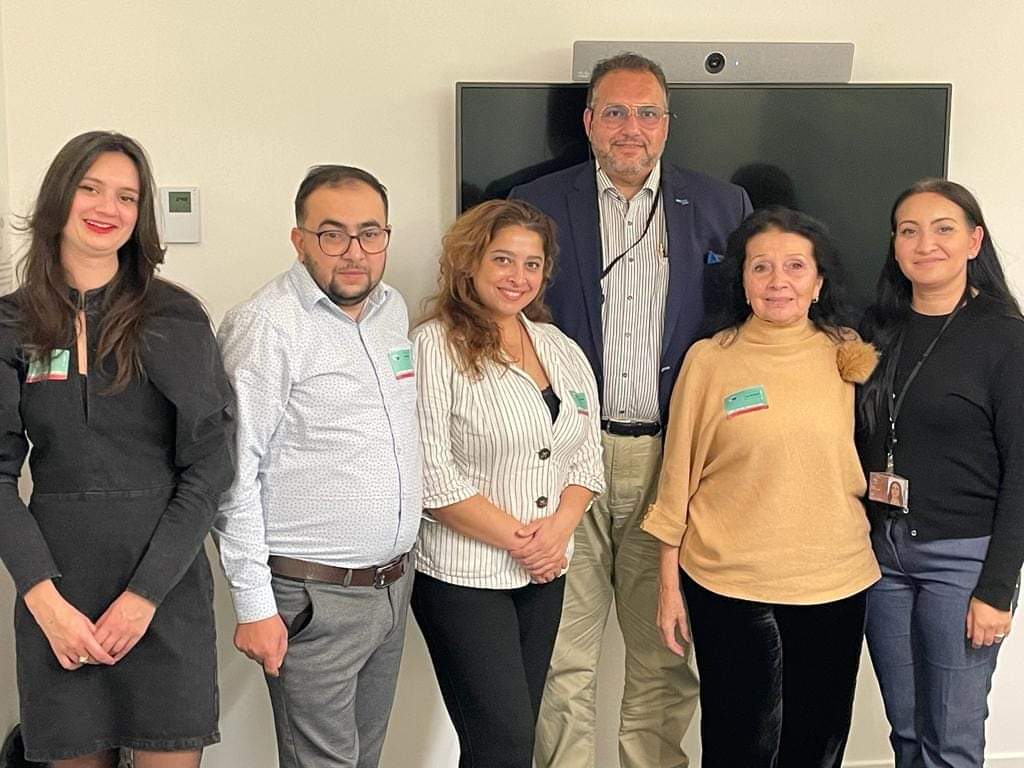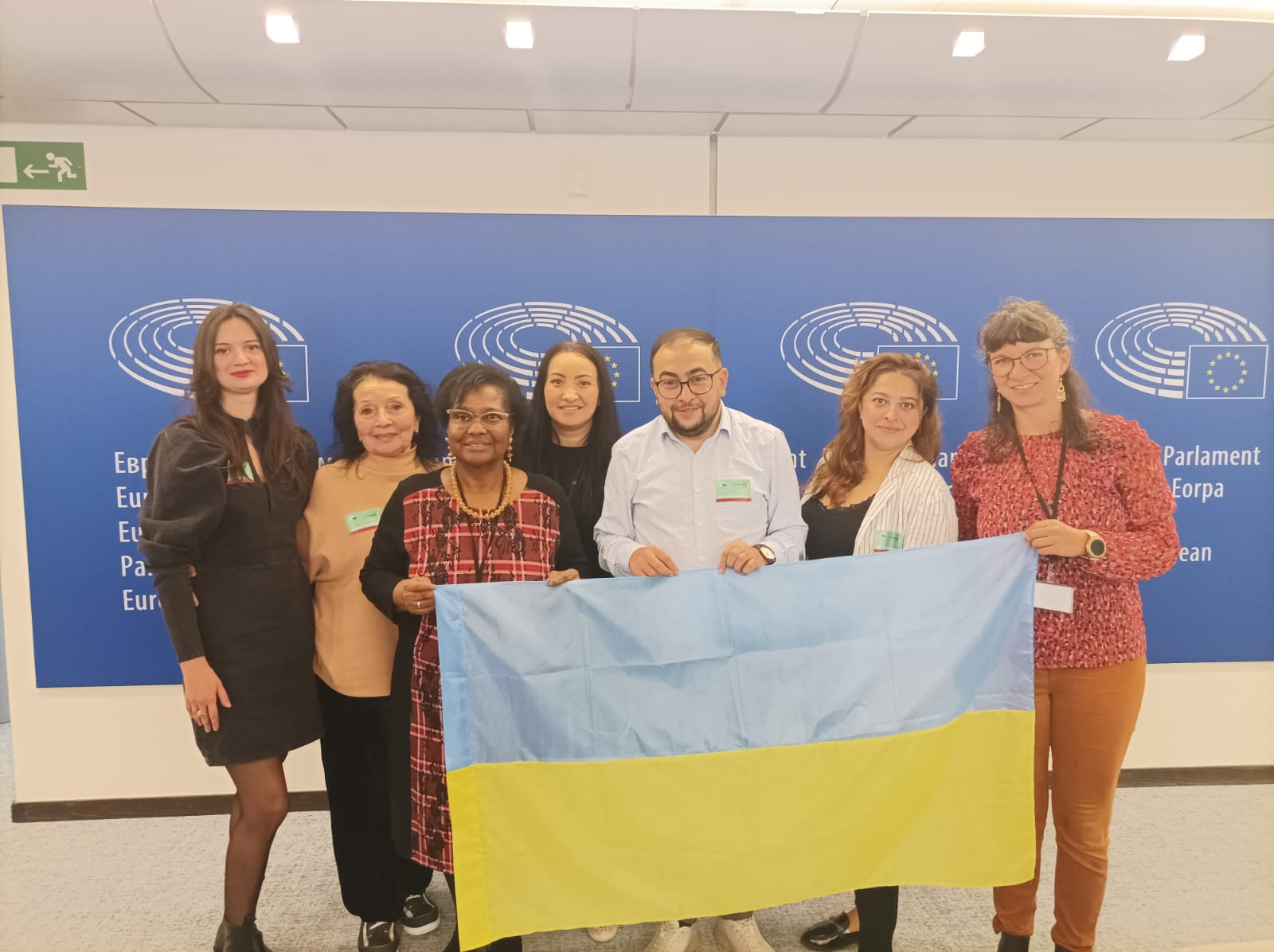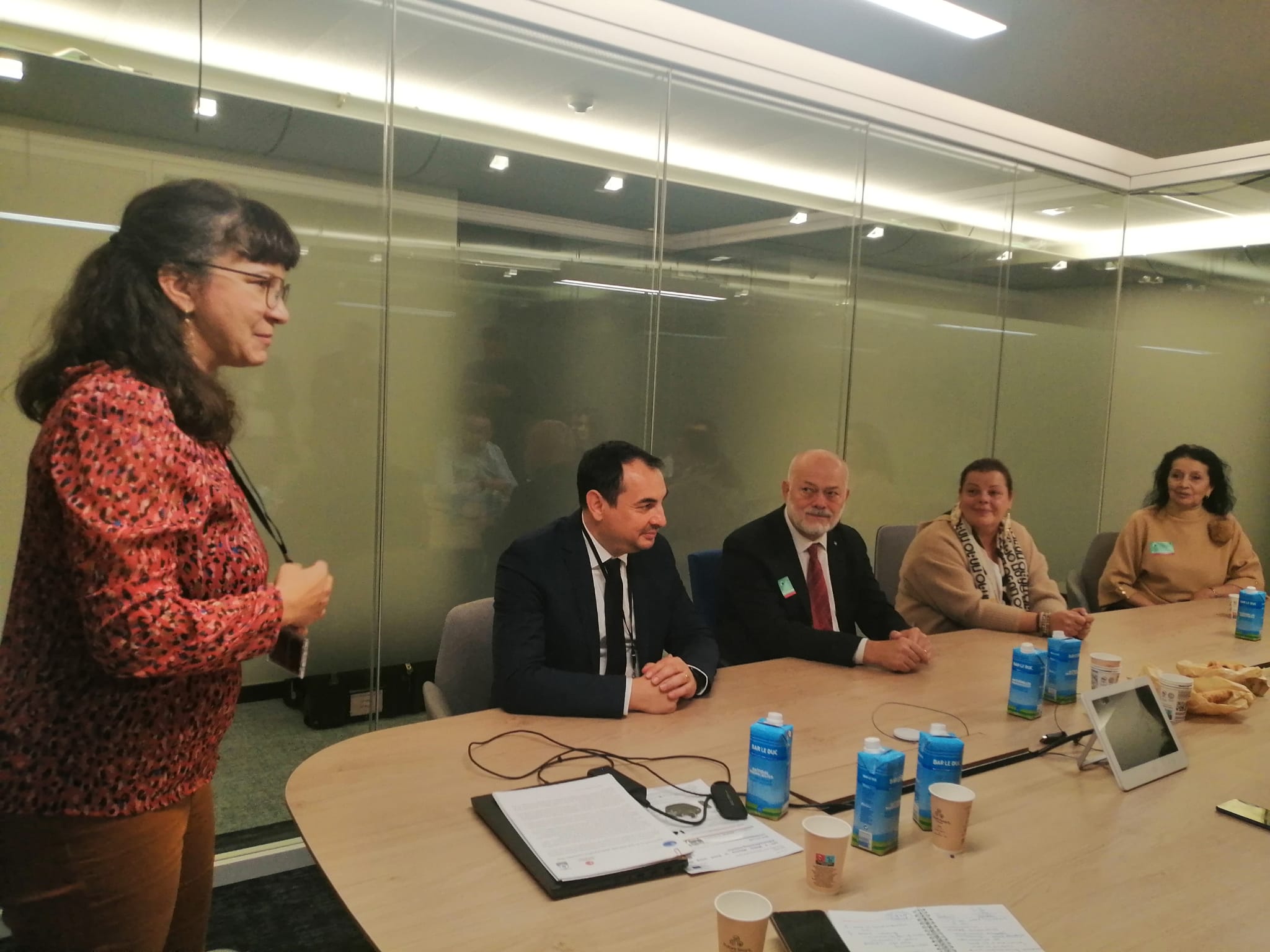Catalysing Change: Advocacy for Communities Discriminated on Work and Descent at the United Nations
In September 2023 rights expert Simona Torotcoi represented ERGO Network within the Global Forum of Communities Discriminated on Work and Descent delegation during the 78th session of the United Nations General Assembly, which included the SDG Action Weekend and the SDG Summit 2023.
Discrimination based on work and descent is any distinction, exclusion, restriction, or preference based on inherited status such as caste, including present or ancestral occupation, family, community or social origin, name, birthplace, place of residence, dialect and accent that has the purpose or effect of nullifying or impairing the recognition, enjoyment, or exercise, on an equal footing, of human rights and fundamental freedoms in the political, economic, social, cultural, or any other field of public life. This type of discrimination is typically associated with the notion of purity and pollution and practices of untouchability, and is deeply rooted in societies and cultures where this discrimination is practised” (Draft Principles and Guidelines for the Effective Elimination of Discrimination based on Work and Descent, Human Rights Council 11th Session, 18 May 2009)
The SDG Action Weekend provided opportunities for stakeholders, UN entities, and Member States to convene at the United Nations Headquarters and make specific commitments to drive SDG transformation from now until 2030. On September 16, speaking at “Breaking Down the Barriers to Leave No One Behind” GFoD delegate Beena Pallical emphasized the importance of the UN and member states embracing the SDGs, particularly addressing communities discriminated against based on work and descent, including Dalits, Roma, and other marginalised groups.
During the “From the SDG Summit to the Summit of the Future: Building the UN We Need” session, Paul Divakar, the convener of GFoD, stressed the significance of combating discrimination and exclusion of communities such as the Roma in Europe, Haratins in Africa, Quilambola in Brazil, Buraku in Japan, and other marginalised communities.
Simona Torotcoi, representing ERGO Network and GFoD, spoke at the Minority Rights Group International side event, “Invisible No Longer: Data Solutions to Leaving No One Behind Dilemmas.”

She addressed the critical issue of the lack of disaggregated data for Roma and other Communities Discriminated on Work and Descent, which affects the implementation and reporting of SDGs and ongoing policy work within the European Union related to Roma communities.
Disaggregated data is essential for understanding inequalities and evaluating progress in Roma inclusion policies. It empowers decision-makers, holds civil society accountable, and enables communities to advocate for changes in policies directly affecting them. Simona stressed the importance of engaging Roma communities in data collection, analysis, and usage, moving beyond formal consultations.
On the 20th of September, GFoD organised a side event titled “Broad-Caste” A light on Communities Discriminated on Work and Descent at the SDG midpoint & beyond. It brought together key governmental representatives, such as the Honourable Minister of Foreign Affairs of Nepal Mr N. P Saud, who pointed out the fact that the SDGs do not mention discrimination based on work and descent and this poses significant challenges to achieving the SDGs agenda: “The world cannot move towards peaceful and inclusive societies and achieve the 2030 Agenda without addressing the root causes of discrimination which more than 270 million people”.
The Minister emphasized that this discrimination affects more than 270 million people globally, extending beyond specific geographical areas and impacting communities like Haratine in the Sahel, Forgeron in West Africa, Roma in Europe, Burakumin in Japan, Dalits in South Asia, Quilambolo and Palenque in South America, and others.

To address these shortcomings and rectify the omission of Communities Discriminated on Work and Descent (CDWD) in key UN frameworks, the Minister expressed full support for GFoD’s efforts to work toward a UN Resolution addressing the discrimination faced by these communities. Nepal also expressed readiness to collaborate with concerned stakeholders.

The following day, GFoD co-organised another side event in partnership with UNDP, UNFPA, UNWomen, and Minority Rights International, titled “Anti-racism in UN Programming” (recorded). This event focused on what UN agencies can and should do to combat racism and include minorities in their policies and programs. Simona discussed the intersectional discrimination and oppression experienced by women from Communities Discriminated on Work and Descent (CDWD), stemming from overlapping social constructs of ability, age, work, caste, class, and gender.
She urged the UN and its agencies to recognise the challenges faced by women from CDWD communities and adopt an intersectional approach in all programmes and policies, both within the United Nations and in their external programs. Simona also proposed establishing a working group to examine the normative standards and lived realities related to the protection of women from CDWS.











 This conference is kindly supported by the European Union Programme for Citizens, Equality, Rights and Values (CERV) and by the German Federal Foreign Office.
This conference is kindly supported by the European Union Programme for Citizens, Equality, Rights and Values (CERV) and by the German Federal Foreign Office.


